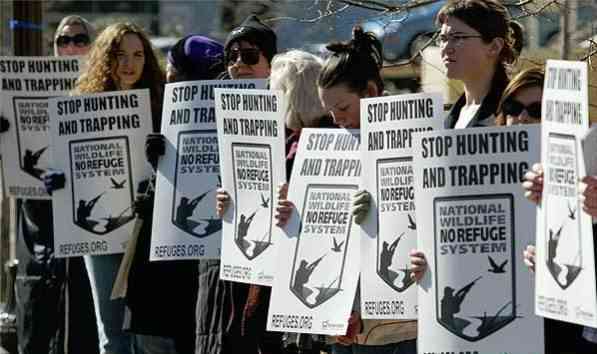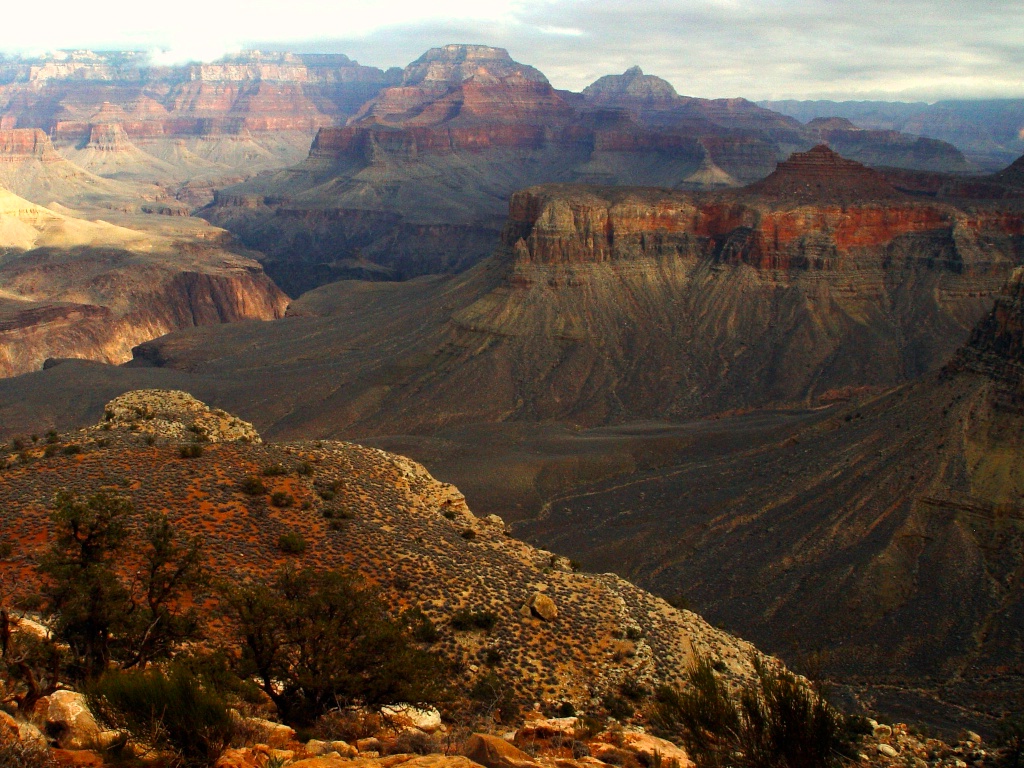Today’s conservationists have grown used to their inadequate power to protect wildlife in the historic battle against moneyed interests. In this blog’s opinion, we lost it not long after the successful environmental battles of the 70’s by draining it into largely useless battles over hunting, trapping, protecting feral cats and other left-right confrontations that will rile people for decades, maybe centuries. Besides being unproductive and irresolvable, the power vacuum allows industry the prerogative to decide the fate of most wildlife because agencies and groups lack sufficient authority to play meaningful roles in decisions affecting wildlife and habitat. With all due respect to their hard work and commitment, they remain bit players in the national battle over the consumption of our natural resources.

The conflict over hunting and trapping has forced conservationists into a left and right confrontation characteristic of our country. In this case well meaning people who care for wildlife aid industrial control over wildlife and wild lands – to their demise.
It was not always this way. Several times in this country’s recent history, conservationists have exerted their influence and gave leaders the power to create a better place for wildlife. Theodore Roosevelt did it in the late 19th century and early 20th by protecting some of most treasured places in our nation, Yosemite and Yellowstone NP for example and planting the seeds of modern wildlife management, professional forestry and modern farming. Franklin Roosevelt did it in the depths of the Great Depression by dramatically expanding refuges for wildlife and creating what is now the greatest wildlife agency in the world – the US Fish and Wildlife Service. He also signed the PittmanRobertson act which underwrote the start of most state wildlife agencies ( as we know them today). Richard Nixon did it by signing the Endangered Species Act which spawned epic power for species that previously had no voice in the halls of power.

Theodore Roosevelt went on a spending spree once given the power to designate wild lands for protection including the Grand Canyon. (photo by L Niles)
We relate these great conservation achievements to the leaders pushing them through the political system, but in fact they were the consequence of a vocal public, who gave leaders power to represent their interests ( and paid hard earned money for permits and taxes to finance the protection). Even though these federal and state agencies remain bastions of hope for wildlife, they have lost significant bureaucratic and electoral power because today’s conservationists choose to be divided and thus politically neutered. One might also conclude they are too self interested to care.
But what if each of us declared that this time is one of the great periods of conservation, what would it look like? Can we replicate earlier success at stopping the industrial scale cleansing of our nation wildlife in all but public lands, like so many unwanted aliens in a wasteland of factory farms, forests and waters?
I say yes because its not as difficult as it seems. In many places it’s a simple choice followed by unswerving intent. This is possible in any part of our lives and we all know how that goes. Losing weight is simply a choice in the end, eat healthy and you lose weight. Simple, and yet not so simple. Often it comes down to making a step, than another and hope for the best.
It’s why I don’t pretend better conservation can come at a large scale. The industrial control of state and federal political systems has grown so pervasive, challenging it would be a herculean effort without a massively mobilized public. But we can take a step by caring for the landscapes we call home, or at least the landscape we love to call home.
At a smaller scale it’s possible because the wildlife of most land and water systems can be restored. It’s the beauty inherent in every wild system: let it rest, give it love, in the form of restoration and most of the time it will come back. The reader might point to the many lands that are so drained of life, they could be never more than sad reminders of our inhumanity to other life for generations. But even in these seemingly hopeless cases decisive action can restore life. Take a look at the west branch of the Susquehanna River.
Flowing out of the Appalachian Plateau of Pennsylvania, it runs red with the acid waste seeping from coal mines abandoned decades ago, some centuries old. The river ran red 40 years ago when, as a graduate student at Penn State, I searched fruitlessly for life as I walked the tragically dead waterway. The cost to the river towns is immeasurable. The red river robs every town of a lucrative tourist economy, a productive fishery and very likely healthy lives for long-term residents. One simple choice, cleaning the mine waters would turn all this around, and it can be done sometimes with surprisingly simple solutions. But it took a voice, Trout Unlimited to partner with government, The Pennsylvania Fish Commission, to create a new cooperative project that is now 10 years into healing the river and restoring fish populations. If the cooperative effort can continue, the river will run clear, be populated by brook trout, attract people as tourists, increase waterside property values and the rural economy will prosper. One simple but difficult choice that can only happen when a determined and public voice speaks for the animals with no voice and makes a simple choice to make things better.

The West Branch of the Susquehanna River drains so many sources of acid mine drainage it and many of its tributaries run red. Here on the South Branch of Bear Run, PA Trout Unlimited in partnership with PA Fish Commission, restored this damaged stream into a trout producing stream ( see left picture ) Photos from Restoration of West Branch of Susquehanna River. Drainage

Thus my commitment to Delaware Bay; it is both home and the landscape I love most in this world. The reader may reasonably be discouraged by the minor scale of restoring a small place compared to the continent-wide resource rape now underway. But if the people who care for one place show success than it will inspire others to seek the same in their own place. Disparate voices can become one voice, powerful enough to demand the attention of the politicians now so devoted to the river of money flowing from corporate America.
next: Conserving Delaware Bay
